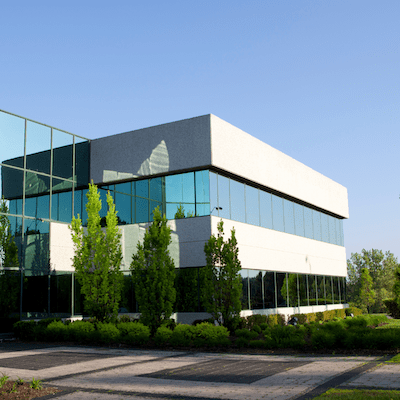
Leasing commercial real estate is worlds away from anything you’d ever experience when renting a house or apartment. The taxes, maintenance, and insurance are all more complex and usually more expensive. This trio is what you’ll often hear as the “TMI” of commercial real estate, not to be confused with the familiar phrase, “too much information”.
As the landlord or tenant of a commercial space, you can never have enough information if you want your investment to be profitable. Understanding these numbers allows you to budget for the portion of the costs you will be responsible for. Let’s take a look at each component in more detail.
Do you want to stay up-to-date with the latest news in residential and commercial real estate? Subscribe to my newsletter right here.
How Budgets Are Forecasted
Each December, the building owner forecasts the budget based on the expenses for that year. These include the property taxes for the entire building, the general maintenance costs, such as lawn care and heating expenses, and any insurance premiums. The owner will then calculate the expected markup for the following year based on what is happening in the economy and whether they anticipate any major repairs in the building.
Once the landlord completes the estimate, they divide up all of the expenses between each tenant based on their individual leasing agreement and square footage. This forecast is essential for tenants to create their own business plans.
At the end of the year, the landlord calculates the difference between the forecasted budget and the actual numbers. If they have a surplus of funds, they either refund a portion of it or reduce the tenants’ payment for the next month. Whenever there’s a deficit, the tenant will cover their portion through an adjustment in rent or extra payment.
Are you planning to buy a commercial property? The posts below can give you some much-needed background information:
- How to Buy a Commercial Property in Toronto and GTA
- Should You Buy or Lease a Commercial Space?
- How to Finance Buying a Commercial Property in Ontario
Everything Is Negotiable
It’s critical to remember that everything is negotiable in commercial real estate, whether you’re the landlord or the tenant. This applies equally to TMI. The landlord typically charges a portion of the expenses back to the tenant depending on the conditions of the lease signed.
The amount of the percentage is negotiable, as are any of the individual expenses. For example, the lease may stipulate that the landlord pays for regular maintenance while the tenant covers part of any last-minute repairs and emergencies.
Typically, all maintenance expenses are not included unless stated otherwise in the lease. Alternatively, it could be a set amount rather than a percentage. With so many details to understand, it’s essential that you work with a commercial real estate agent to protect your best interests.
TMI and Capital Expenditures
Capital expenditures are different from regular maintenance and repairs as they can substantially increase the value of the building. Whether or not they’re included in TMI depends on the type of lease.
- Under a net lease, the tenant should assume they’ll cover for their share of any capital expenditures and budget accordingly. These costs will be amortized over time rather than billed all at once.
- A gross lease means the landlord generally covers the costs unless the lease states otherwise.
In either case, it’s important to understand what type of agreement you have as well as any clauses or contingencies. Otherwise, it can get very expensive for the tenant if the landlord decides to add new elevators or upgrade the electrical system for the whole building.
Revenue for Landlords, Expenses for Tenants
Covering the mortgage and other carrying costs for a building can be an expensive proposition for the owner. As a result, they will typically be on the hunt for other ways to earn revenue from their property, such as charging for parking spaces.
If you’re the landlord, this can be an excellent source of extra income. As a tenant, however, you must be careful as this is yet another expense that you must budget for. If in doubt, connect with a commercial real estate agent to review your lease and point out any hidden fees you may not be aware of.
Commercial and industrial real estate investing in Toronto and Ontario can be very lucrative. You’ll gain some valuable insight in the posts below:
- How to Invest in Toronto Industrial Real Estate
- Is Investing in Commercial Real Estate a Good Idea?
- Most Lucrative Commercial Real Estate Investments in Ontario
Transparency Is Critical
The time to prevent disagreements about TMI between the landlord and tenant is preferably before they come up in the first place. This starts with creating and understanding a clear, detailed lease so each party knows all of the terms – and who will pay for what part of the expenses.
The landlord is responsible for keeping accurate records about all of the building’s expenses, as well as how the TMI is being calculated. The tenant has the right to review all information on the operating expense statement so they know what to expect when it comes time to create their own forecasts.
As costs rise, the tenant should also understand how their TMI expenses will be adjusted. Legal disputes can arise if either the tenant or the landlord feels the other is not acting above board. As a result, it’s important that each party read all agreements carefully, always recommended under the guidance of a knowledgeable commercial real estate agent. Honesty, transparency, and both parties acting in good faith will go a long way toward building a positive and profitable business relationship.
I am happy to offer professional guidance to help ensure a positive outcome, whether you’re searching for a commercial building to buy or lease. Connect with me at OMarjanovic@kw.com or call 647.620.2882 to learn more.

Meet The Team
Discover why buyers and sellers of residential and commercial real estate continue to choose us.




